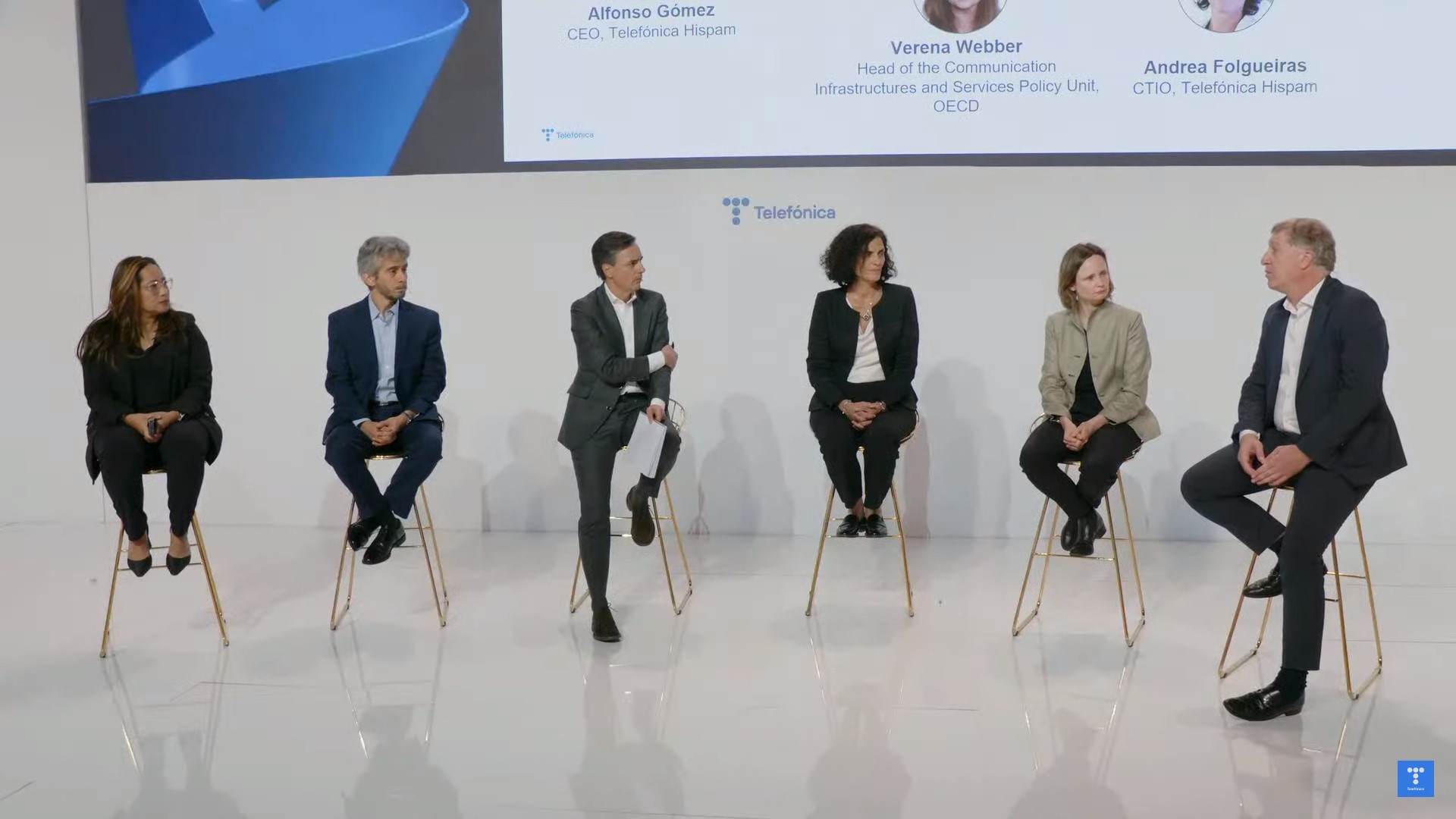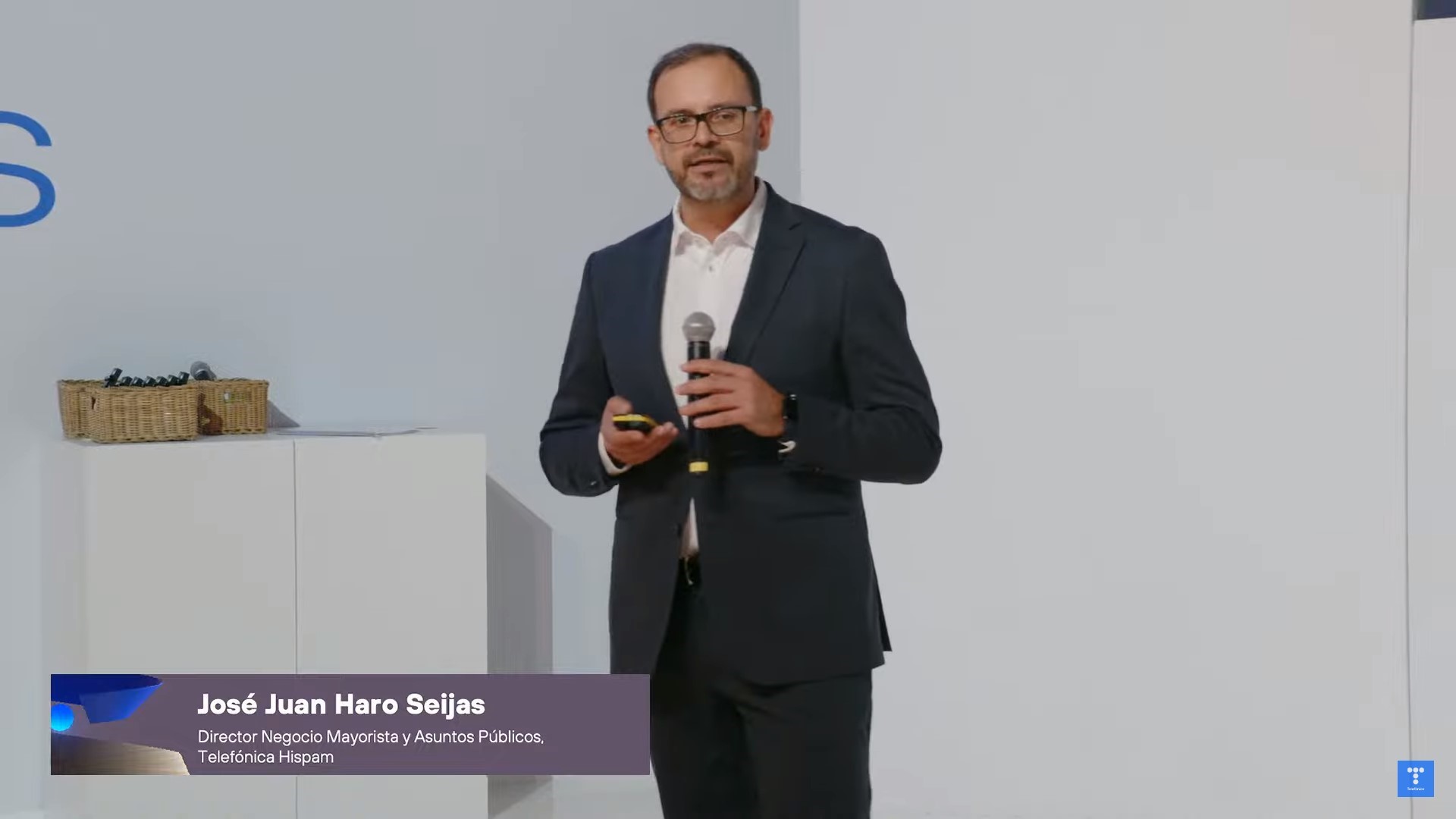Cooperating with diverse actors to speed up the deployment of infrastructure, both fixed to the home and mobile for individuals, and to expand coverage to millions of new customers in Latin America, is a system that is increasingly gaining momentum, with proven examples such as those implemented in the region by Telefónica Hispam. Network sharing schemes, as well as the prioritisation of service expansion in the definition of spectrum prices, are generally accepted good practices recommended by reference organisations.
This was confirmed by the OECD, through the head of the Infrastructure and Communication Services Policy Unit of this international cooperation organisation, Verena Weber, during her speech at the Mobile World Congress 2023, who pointed out the great advances in Latin America in relation to other countries with a similar context, associating the region’s development with the system of alliances.
At this MWC, the most important telecommunications event in the world, we heard how the Organisation for Economic Co-operation and Development highlighted the alliances model under which local operators work together with a neutral entity for networks roll-out. As examples of success, the OECD underlined the case of Chile, a country that has managed to reach 12th place in the world’s fibre access statistics. It also stated that neutral networks present a great opportunity to bridge the digital divide, while maintaining competitiveness among the different players.
All of the above can be seen in the panel New Partnership Model to overcome connectivity challenges in Latin America, which was led and moderated by Alfonso Gómez Palacio, CEO Telefónica Hispam.
Deployment through a neutral network: Chile and Colombia
Telecommunications companies tend to be very CAPEX intensive. The heavy investments made by companies in the sector to deploy infrastructure limit their scope for offering new services or implementing more advanced technologies for the benefit of people and localities. This is why having a neutral network operator, such as ON*NET Fibra, enable telcos to share digital infrastructures, allowing us to redirect a greater percentage of our investment to adequately meet the needs of people.
In 2021, Telefónica and KKR, a US investment fund, presented this partnership that boosted the deployment of fibre optics in Chile and Colombia. I would like to emphasise that this new company was not conceived as just another player competing in the telecommunications sector, but as a vehicle that all operators can use and benefit from in order to close the digital divide in both countries. Neutrality is the cornerstone of ON*NET Fibre, providing and applying the same conditions for all operators in the market, in an open and neutral manner.
Fixed network rollout cooperation: Peru and Argentina
In May 2019, Telefónica Hispam launched Internet for All in Peru, a telecommunications company whose partners were originally from outside the sector. Together with Meta (Facebook), the Development Bank of Latin America (CAF) and IDB Invest, we implemented a new model, completely disruptive, with the aim of reducing the rural digital divide in that country. Three years after its creation, Internet for All has become the first connectivity company in Peru, currently offering 4G coverage to 15,000 locations in that nation, benefiting more than three million people. We are proud of this collaborative work because we are on our way to closing the digital gap in the country, connecting the unconnected.
Likewise, in October 2022, Telefónica added a new partner, this time in Argentina to accelerate the deployment of high-capacity networks under a sustainable and inclusive model. Together with SION, American Tower and Metrotel, the company has managed to deliver fibre to more than three million homes. In addition, we continue to work towards enabling people to get up to 1 GB of fixed broadband, plus Telefónica’s associated services.
Mobile network rollout cooperation: Mexico
The high cost of spectrum in Mexico was the trigger that led us in 2019 to explore new models to ensure the sustainability of investments and continue to provide our customers with better connectivity opportunities. Telefónica closed a wholesale contract with AT&T that year to create a single network, moving our traffic to the US multinational’s network. Today, after a migration path that has lasted three years, Telefónica has managed to triple the 4G coverage it offers in Mexico.
We have a common language and the same objective: to improve people’s lives and achieve development in the region. For this reason, the spirit of cooperation and alliances that we are implementing in Telefónica Hispam will allow us to ensure – together with the importance of having appropriate public policies – the sustainability of the telecommunications sector and overcome the gaps to achieve the digital transformation of Latin America.









